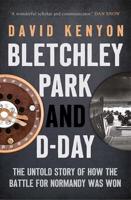Publisher's Synopsis
The idea of a heavy cruiser emerged in the aftermath of World War I, and was closely linked to the limits set by the inter-war Washington Naval Treaty. The pre-World War I concept of armoured cruisers had been abandoned, but in their stead the Admiralty saw a place for powerful cruisers, able to patrol the sea lanes of the British Empire, and which were well-armed enough that they could destroy enemy commerce cruisers. The result was a group of British warships, known as the 'Washington Treaty Cruisers', that did everything the Admiralty wanted, but which conformed to the limits imposed by the treaty. These impressive cruisers were high-sided, spacious and stately - perfect peacetime ambassadors for British power. In war they also packed a considerable punch. During World War II the Royal Navy's thirteen heavy cruisers saw service in every theatre of the war, whether facing the Bismarck in the North Atlantic or enduring kamikaze attacks in the Pacific.











